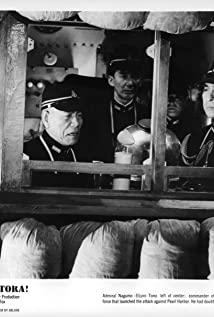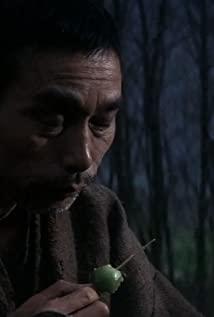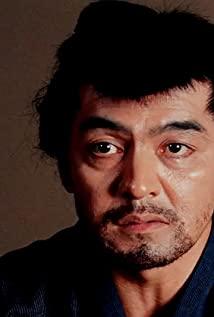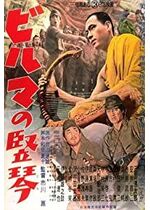-
Camylle 2022-04-24 07:01:23
The anti-war theme of Buddhism, some people say that this is not a war movie, there is no anti-war tone. On the way back to the team, Shui Dao saw the corpses of his compatriots everywhere, so he decided to be a corpse-collecting monk who wanted to be reunited but disarmed and converted, and wanted to return to China but stay in a foreign land. It's a reflection of war sitting in a...
-
Deondre 2022-04-24 07:01:23
Post-war trauma group. The plot is a little contrived and deliberate, and the rhythm of the singing is relatively slow. The images are very naturalistic and I like them very...
-
Frieda 2022-04-24 07:01:23
In fact, it is a story of Buddhist persuasion. When you can let go, you will see the true nature of "reciting the world and the world". If you can't realize it, you will not be able to understand the original intention of "passers-by on the road want to break their souls". For the salvation of the common people, although the resonance of the soldiers from all sides is strong, only the protagonist has an epiphany and grieves his...
-
Rosanna 2022-04-24 07:01:23
The angle is quite new, but I think it was taken by a small Japan, it is inevitable that it is a...
-
Julia 2022-04-24 07:01:23
This ending seems to have changed a little from the original book. The end of the original book accused the Japanese of unbalanced desire and ignorance, but Mizushima in the movie thought that the cause of the pain caused by the world war was unknown? , no longer investigate his right and wrong, but attribute the murder to some mysterious human tragedy, and then fall into the thinking and imagination of this tragedy. This is the so-called art? Think about it now, China Only anti-Japanese films...
-
Elinore 2022-04-24 07:01:23
Can't leave my compatriots lying on the hills and rivers of Burma...why does the world suffer so much? Why is it unspeakable pain? "If it's a Burmese movie, it should be full marks, but it's a Japanese movie, and he doesn't count for anything. The movies they made 10 years after the war were still only their own...
-
Durward 2022-04-23 07:04:07
Ichichuankun's humanitarianism = I stayed in Myanmar to bury the bones of my comrades in arms, and I can only play a harp with your singing to send you back. "When I can't stand loneliness, I play my harp"...
-
Nikita 2022-04-23 07:04:07
Four and a half stars, if there is a defect, it is that the last letter does not need to exist. From the moment Mizushima rolled down the hillside, it has already foreshadowed its own end, and everything that has been experienced can be regarded as an inevitable and irresistible fate. The singing of the harp throughout it adds a bit to this serious and depressing black and white image. "Death-like vitality", several shots have an inexplicable sense of desolation and powerlessness. I was moved...
-
Jamil 2022-04-23 07:04:07
Talk about war in the most romantic way, avoid the most painful thinking about responsibility, and only bemoan appearances. This film can once again understand Japan, which is full of ambiguity and turbidity about the war, and ignores the important...
-
Jaylan 2022-04-23 07:04:07
Mizushima should have been a lonely person before joining the army. Taught himself to play the harp in the army, and often patrolled alone, perhaps to carve out some personal space. After the war, he was no longer obliged to act with others, no longer obliged to speak to others. Nor is he interested in rebuilding the country in solidarity. So he left alone to take care of the corpse left behind by everyone. The film is not so much anti-war as it is against a unified collective...
The Burmese Harp Comments
-
Courtney 2022-01-20 08:03:36
Why is Mizushima reluctant to talk to his teammates? ——The unexplained plot of the film
This film is really a model of conveying things and expressing aspirations. There are many silent plots in it. Thoughts and feelings are conveyed through things, which are interlinked and naturally exquisite.
This film is also very ideological. In the end, Mizushima's letter answered the reason why... -
Lottie 2022-01-20 08:03:36
"The Harp of Burma": the painful soul of man
The appeal and shock of an excellent film hits people's hearts. The most successful part of this film is to restore the existence of soldiers as individual "people" in the war.
The film I watched a few years ago was picked up again by coincidence, and I was lucky enough to read the script.
It can...
Top cast
-
Voice of Inouye's parrot: Mizushima, let's return to Japan together.
-
British officer: We've done all we can. The troops that took Triangle Mountain have returned home. The Japanese survivors are not in this town.
Captain Inouye: But that tune?
British officer: You hear a certain way of playing - a few notes floating by the breeze, and it's enough to make you think a dead man is alive. You must be dreaming.
British officer: [to his adjutant] He must be dreaming!
Director: Kon Ichikawa
Language: Japanese,English,Burmese Release date: April 28, 1967








